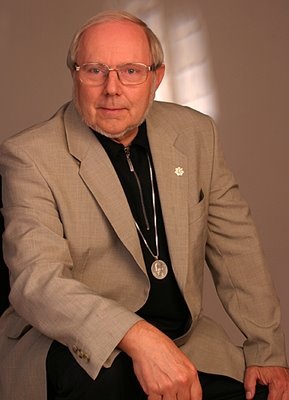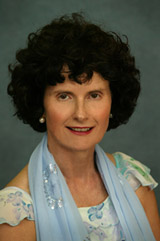|
The IADIS International Conference e-Learning 2009 (part of the IADIS Multi Conference on Computer Science and Information Systems) was held in Algarve, Portugal, 17-20 June, 2009.

The intention of this Conference was to address the main issues of concern within e-Learning, trying to cover both technical as well as the non-technical features of e-Learning.
In 2009, the conference received 186 submissions from more than 38 countries. Each submission had been anonymously reviewed by an average of four independent reviewers, to ensure that accepted submissions were of a high standard. As a result, only 37 full papers were approved which meant an acceptance rate of about 19 %. A few more papers were accepted as short and reflection papers and posters.
The submissions were accepted under the following seven main areas and topics:
Organisational Strategy and Management Issues
• Higher and Further Education
• Primary and Secondary Education
• Workplace Learning
• Vocational Training
• Home Schooling
• Distance Learning
• Blended Learning
• Change Management
• Educational Management
• Continuous Professional Development (CPD) for Educational and Training Staff
• Return on e-Learning Investments (ROI)
Technological Issues
• Learning Management Systems (LMS)
• Managed Learning Environments (MLEs)
• Virtual Learning Environments (VLEs)
• Computer-Mediated Communication (CMC) Tools
• Social Support Software
• Architecture of Educational Information Systems Infrastructure
• Security and Data Protection
• Learning Objects
• XML Schemas and the Semantic Web
• Web 2.0 Applications
e-Learning Curriculum Development Issues
• Philosophies and Epistemologies for e-learning
• Learning Theories and Approaches for e-learning
• e-Learning Models
• Conceptual Representations
• Pedagogical Models
• e-Learning Pedagogical Strategies
• e-Learning Tactics
• Developing e-Learning for Specific Subject Domains
Instructional Design Issues
• Designing e-Learning Settings
• Developing e-Learning Pilots and Prototypes
• Creating e-Learning Courses
- Collaborative Learning
- Problem-based Learning
- Inquiry-based Learning
- Blended Learning
- Distance Learning
• Designing e-Learning Tasks
- E-learning Activities
- Online Groupwork
- Experiential Learning
- Simulations and Modelling
- Gaming and Edutainment
- Creativity and Design Activities
- Exploratory Programming
e-Learning Delivery Issues
• e-Delivery in Different Contexts
- Higher and Further Education
- Primary and Secondary Schools
- Workplace Learning
- Vocational Training
- Distance Learning
• Online Assessment
• Innovations in e-Assessment
• e-Moderating
• e-Tutoring
• e-Facilitating
• Leadership in e-Learning Delivery
• Networked Information and Communication Literacy Skills
• Participation and Motivation in e-Learning
e-Learning Research Methods and Approaches
• Action Research
• Design Research
• Course and Programme Evaluations
• Systematic Literature Reviews
• Historical Analysis
• Case Studies
• Meta-analysis of Case Studies
• Effectiveness and Impact Studies
• Evaluation of e-Learning Technologies
• Evaluation of Student and Tutor Satisfaction
• Learning and Cognitive Styles
• Ethical Issues in e-learning
e-Skills and Information Literacy for Learning
• Teaching Information Literacy
• Electronic Library and Information Search Skills
• ICT Skills Education
- in Schools and Colleges
- for Business, Industry and the Public Sector
- in Adult, Community, Home and Prison Education
- Informal Methods (peer Groups, Family)
• Education for Computer-mediated
• Communication skills
- Netiquette
- Online Safety for Children and
Vulnerable Users
- Cybercrime Awareness and Personal Prevention
• Student Production of Online Media
- Web Design
- Digital Storytelling
- Web 2.0 Tools
- etc.
• Digital Media Studies
The conference program was divided in 20 parallel sessions, with the presentation of full, short and reflection papers, posters and a doctoral consortium. The conference also included two keynote presentations from internationally distinguished researchers (Jay Cross, Internet Time Group, Berkeley, California, USA and Professor Hermann Maurer, Graz University of Technology, Austria) and an Invited Speech by Catherine McLoughlin (Associate Professor), Australian Catholic University, Canberra, Australia.
Keynotes Presentations:
K1 - "SOCIAL LEARNING IN THE NETWORK ERA" by
 Jay Cross, Internet Time Group, Berkeley, California, USA Jay Cross, Internet Time Group, Berkeley, California, USA
Abstract:
The net changes everything, including how people work and the basic tenets of instructional design. Knowledge work and learning itself are becoming indistinguishable. Through examples of network-based learning and collaboration, Jay will provide insight into learning in an unpredictable world where change is the only constant, everyone becomes a leader, the output of work is intangible, workers learn from one another, and life is in perpetual beta. He will also discuss the latest innovations uncovered by the
non-profit group, the Learning Irregulars.
K2 - "KNOWLEDGE GATHERING AS IT CHANGES WITH NEW TECHNOLOGIES" by
 Professor Hermann Maurer, Graz University of Technology, Austria Professor Hermann Maurer, Graz University of Technology, Austria
Abstract:
The Web has caused a revolution of how we can access information today, how we easily get answers to many problems, and how we learn. However, one must not overlook that the Web also has some inherent dangers that are more and more emerging. With all enthusiasm we have for the Web we should also be aware of some of the subtle and some of the not so subtle dangers. In my talk I will address some of the issues we should be aware of. One item is the dangerous loss of privacy (due to many organizations collecting detailed profiles on all of us, but also on organisations, economic developments and other issues), some of the loss of privacy also due to an unheared of exhibitionism in social networks. Also, information on the Web is often trusted much too easily, leading to a distorted view of reality. Many of the communciation tools lead to a loss of concentration and understanding, the latter enhanced by the dangerous copy/paste syndrome. As Tra Brabazon has stated: "Researching is being replaced by searching". Also, it is overlooked that the convergence of mobile phones with powerful PCs will give us excellent personal assistants, but will also obviate the need to learn many things humans have had to learn for generations. Thus it seems that we have to completely re-think education and e-Learning: While myriads of attempts are made HOW to improve teaching with technology, the main issues may rather be WHAT and WHEN we teach things, since so much (will be or) is available everywhere at our fingertips. Finally, can we really trust technology, or could it fail us at some stage on a gigantic scale?
Invited Speech:
"THE FUTURE OF E-LEARNING: ITS' ALL ABOUT PERVASIVE COMPUTING, PERSONALISATION AND PARTICIPATION" by
 Associate Professor Catherine McLoughlin, Australian Catholic University, Canberra, Australia Associate Professor Catherine McLoughlin, Australian Catholic University, Canberra, Australia
Abstract:
Technological change has had significant impact on access to information and the rate of dissemination of ideas, inevitably affecting the way students learn, and to a lesser extent, the way teachers teach. The impact of the information age has also had major impact on the role of learning technologies in communication, student support and assessment. There is evidence that the existence of virtual learning does not mean that learners will migrate to virtual worlds and have no need of physical spaces and teachers, but rather that learning environments teaching need to be redesigned to promote interaction and informal learning. Though informal learning isn't a new phenomenon, as higher education continues to evolve, its importance is being more widely acknowledged as institutions explore ways of enabling student success by creating spaces, resources, and personalised activities to support learning beyond the walls of the institution. This talk will focus on innovative approaches to learning, teaching and assessment which are supported by the augmented capabilities and applications of new learning technologies, and will consider future scenarios that will enable self-regulated learning.
From the conference's best papers were published extended versions in International Journal of Information and Communication Technology Education (ISSN: 1550-1876) and in the IADIS International Journal on Computer Science and Information Systems (ISSN: 1646-3692) and also in other selected journals, including journals from Inderscience. Four papers were considered as the conference's best papers. They are:
Outstanding Papers:
USING TURNITIN AS A LEARNING TOOL: A PILOT STUDY by John Biggam, Margaret McCann, Alexis Barlow and Alan Hogarth, Glasgow Caledonian University, UK
Abstract:
This paper explores the use of Turnitin as a learning tool and as a vehicle for reducing incidences of plagiarism. Plagiarism is a growing problem in Universities and the traditional approaches to tackling plagiarism are either to catch the culprits and punish them or to pretend that the issue does not exist and hope it goes away. One of the most popular tools used to help detect plagiarism is Turnitin. This paper highlights a third way to address the thorny issue of plagiarism in Universities: the use of Turnitin as a means of educating students on how to cite sources and improve their writing skills, rather than as a mechanism for gathering evidence against students. This research revolves around a case study of final year "honours" undergraduate class of students undertaking their year-long core dissertation module. Prior to final submission of their dissertation, the students are required to submit their completed work into Turnitin; however, Turnitin was set up also to allow students to voluntarily submit their ongoing work, chapter by chapter.
This study is in two parts: 1) the initial set up of Turnitin and voluntary submissions throughout the academic year; 2) final compulsory submission.
This paper discusses the preliminary findings of part 1 of this two-part study. The first stage of this research is still ongoing, but already the findings indicate that although the majority of students failed (so far) to voluntarily submit their ongoing work to Turnitin, but those that did, produced an interesting historical record of their learning development and skills for both staff and students, as discussed in this paper.
EXPLORING THE BARRIERS TO EFFECTIVE E-LEARNING: CASE STUDY OF DARTMOOR NATIONAL PARK AUTHORITY, UK by Fenio Annansingh and Ali Bright, Plymouth Business School, United Kingdom
Abstract:
This paper discusses a case study which examined and analysed an ICT training programme which was conducted using e-learning at the Dartmoor National Park Authority (DNPA). It focuses, in particular on the barriers to effective elearning and how they contributed to a high drop-out rate amongst the trainees. The research adopted a mixed method approach which involved the use of questionnaires and semi-structured interviews. Data analysis was accomplished using descriptive data analysis. The results show that an analysis of users needs prior to the training is essential. This should involve both trainee and manager to help ensure their commitment to the training. In addition, the provision of sufficient information prior to training is essential to allay any concerns trainees may have, as well as the use of mentors to reduce user resistance. It has also been identified that effective monitoring throughout the training programme will help to identify trainee concerns quite early thus minimising the drop out rate. The paper concludes by recommending a number of approaches that could be used to help mitigate these barriers.
DISCOVERING TRENDS IN THE FIELD OF E-LEARNING FROM 2003 TO 2008 USING VISUALIZATION by Muhammad Salman Khan and Hermann Maurer, IICM, Graz University of Technology, Austria
Abstract:
This paper provides a content analysis of studies in the field of e-learning that were published in three Social Science Citation Index (SSCI) journals (Computers and Education, British Journal of Educational Technology and Educational Technology Research & Development) from 2003 to 2008 using our internally built visualization tool. We identified 15 main research topics based on 100 concepts clusters from 1031 articles. The visualization tool which is primarily based on animated bubble chart and pie chart revealed the trends of contributions in the field over the years, different research topics that have evolved or diminished over the period across the globe, hot research topics, key researchers, leading institutions and nations, evolution of countries, continents, and institutions in comparison to each other. The results in this study will allow novice and experienced educators, researchers, policy makers in the field of e-learning to study what kind of different research areas exist and to identify different research patterns over the last six years.
Best Paper:
ONLINE ABSTRACT MENTORING FOR INDUCTING EARLY CAREER HIV RESEARCHERS INTO SCIENTIFIC LITERACY PRACTICES: EXPERIENCES FROM THE INTERNATIONAL AIDS CONFERENCES by Gurmit Singh, International AIDS Society
Abstract:
Many early career HIV researchers from resource-limited settings are not familiar with the practices of writing up and publishing research for competitive international conferences or journals. Yet, there is an increasing need for research – and its dissemination – by early-career practitioner-researchers, who are producing knowledge from the front lines of practice. This will support continuous improvement in scaling-up HIV prevention, treatment, care and support, and research capacity building. This paper reports on an online abstract mentoring programme conducted by the International AIDS Society aimed at early career researchers. The programme began in 2004, and, in its current form, took place before the AIDS 2008 and IAS 2009 conferences. The paper explores how online mentoring can, in addition to building useful skills, enhance the induction of novices into the literacy practices of a global learning community. With a situated and constructivist view of online teaching and learning, I consider the implications for redesigning future global AIDS conferences as collaborative capacity-building spaces, via the use of Web 2.0 technologies that can make access to desirable literacy practices more equitable.
The e-Learning Conference 2009 was published both in Book (ISBN: 978-972-8924-83-6) and CD-ROM (ISBN: 978-972-8924-80-5).
Program Committee:
Program Chairs:
Miguel Baptista Nunes, University of Sheffield, United Kingdom
Maggie McPherson, University of Leeds, United Kingdom
General Conference Co-Chairs:
Piet Kommers, University of Twente, The Netherlands
Pedro Isaías, Universidade Aberta (Portuguese Open University), Portugal
Nian-Shing Chen, National Sun Yat-sen University, Taiwan
Committee Members:
Anneli Heimbuerger, University of Jyväskylä, Finland
Adriana Berlanga, Open University, The Netherlands
Airina Volungeviciene, Vytautas Magnus University, Lithuania
Alan Hogarth, Glasgow Caledonian University, UK
Alex Voychenko, International Research and Training Center for ITS, Ukraine
Alexandra Cristea, University of Warwick, UK
Alexis Barlow, Glasgow Caledonian University, UK
Alla Manako, IRTC, Ukraine
Amali Weerasinghe, University of Canterbury, New Zealand
Amjad Mahmood, University of Bahrain, Bahrain
Ana Martinez, University Central of Venezuela, Venezuela
Andrea Squarcia, University of Genova, Italy
Andreas Bollin, Klagenfurt University, Austria
Andreas Papasalouros, University of the Aegean, Greece
Ángel Lucas González, Universidad Politécnica de Madrid, Spain
Annabelle Preussler, University of Duisburg-Essen, Germany
Annette Payne, Brunel University, UK
Anouk Gelan, University Hasselt, Belgium
Anoush Margaryan, Glasgow Caledonian University, UK
Antonio Navarro, Universidad Complutense de Madrid, Spain
Apostolos Gkamas, University of Peloponissos and ACTI, Greece
Ben Chang, National Chiayi University, Taiwan
Ben Daniel Motidyang, University of Saskatchewan, Canada
Benno Volk, Center of the University of Zurich, Switzerland
Birgit Bomsdorf, Fulda University of Applied Sciences, Germany
Bruno Warin, Université du Littoral Côte d'Opale, France
Carmen Nápoles, University Carlos III of Madrid, Spain
Catherine McLoughlin, Australian Catholic University, Australia
Cerstin Mahlow, University of Zurich, Switzerland
Charalampos Karagiannidis, University of Thessaly, Greece
Christine Bauer, University of Vienna, Austria
Christos Bouras, University of Patras, Greece
Constantin Makropoulos, National Center for Scientific Research Demokritos, Greece
Danguole Rutkauskiene, Kaunas University of Technology, Lithuania
David Guralnick, Kaleidoscope Learning, USA
Demetrios Sampson, Center for Research and Technology - Hellas, Greece
Dirk Ifenthaler, Albert-Ludwigs-University, Germany
Egle Butkeviciene, Kaunas University of Technology, Lithuania
Elarbi Badidi, United Arab Emirates University, United Arab Emirates
Elena Mosa, INDIRE., Italy
Elliot Soloway, University of Michigan, USA
Emma O Briend, University of Limerick, Ireland
Erick Araya, University Austral of Chile, Chile
Eva Jereb, University of Maribor, Slovenia
Ezendu Ariwa, London Metropolitan University London
Francesca Pozzi, Instituto Tecnologie Didattiche –CNR, Italy
Francesca Puddu, Instituto Tecnologie Didattiche – CNR, Italy
Francisco Almeida Martínez, Universidad Rey Juan Carlos, Spain
Franz Wirl, Wirtschafts University, Austria
Fridolin Wild, Vienna University of Economics and Business Administration
Gabriela Grosseck, West University of Timisoara, Romania
Gemma Corbalan, Open University of the Netherlands, Netherlands
George Palaigeorgiou, AUTH, Greece
George Papadourakis, School of Applied Technology, Greece
George Tsihrintzis, University of Piraeus, Greece
Giusy Cannella, INDIRE, Italy
Gonzalo Méndez Pozo, Universidad Complutense de Madrid, Spain
Guglielmo Trentin, CNR - Istituto Tecnologie Didattiche, Italy
Ignacio Aedo, Universidad Carlos III de Madrid, Spain
Imed Hammouda, Tampere University of Technology, Finland
Ioan Salomie, Technical University of Cluj-Napoca, Romania
Ioannis Vardiambasis, Technological Educational Institute (T.E.I.) of Crete, Greece
Ivan Ganchev, University of Limerick, Ireland
J.Akbar Ali, Majan University College, India
Jaime Muñoz, Universidad Autónoma de Aguascalientes
Jaime Ramírez, Universidad Politécnica de Madrid, Spain
Jan Pawlowski, University Duisburg-Essen, Germany
Jehad Najjar, K.U.Leuven, Belgium
Jerzy Dabkowski, Cracow University of Technology, Poland
Jesualdo Tomás Fernández Breis, University of Murcia, Spain
Jesús Salinas Ibáñez, Universidad de las Islas Baleares, Spain
Jirarat Sitthiworachart, Walailak University, Thailand
Joanna Wild, Centre for Social Innovation - ZSI, Austria
John Biggam, Glasgow Caledonian University, UK
Jose Bidarra, Open University, Portugal
José-Luis Sierra-Rodríguez, Universidad Complutense de Madrid, Spain
Juan Santos, Universidad Politécnica de Valencia, Spain
Julia Sonnberger,e-Learning Center TU Darmstadt, Germany
Julian Newman, Glasgow Caledonian University, UK
Kalle Juuti, University of Helsinki, Finland
Katerina Kabassi, University of Piraeus, Greece
Katherine M. Sinitsa, Ukraine International Research and Training Center, Ukraine
Kathrin Figl, Universität Wien, Austria
Kazunori Nozawa, Ritsumeikan University, Japan
Kristina Wieland, Albert-Ludwig University, Germany
Lasse Lipponen, University of Helsinki, Finland
Leonardo Garrido, Tecnológico de Monterrey, Mexico
Liliana Valencia , Rey Juan Carlos University, Spain
Liodakis George, Technological Educational Institution of Crete, Greece
Lisette Lunar,Universidad Catolica Andres Bellos, Venezuela
Lourdes Villardón, Universidad de Deusto, Spain
Luigi Sarti, Istituto per le Tecnoologie Didattiche, Italy
Luis Álvarez-González, Universidad Austral de Chile, Chile
Maiga Chang, Athabasca University, Canada
Mairtin O'Droma, University of Limerick, Ireland
Malcolm Ryan, Greenwich University, UK
Mandel Schewa, University of Zürich, Switzerland
Mandy Schiefner, University of Zurich, Switzerland
Manolis Tsiknakis, FORTH, Greece
Manos Varvarigos, University of Patras, Greece
Manuel E. Prieto Méndez, UCLM, Spain
Manuela Repetto, Instituto per le Tecnologie Didattiche – CNR, Italy
Marco Kalz, Open University of the Netherlands, Netherlands
Margarita Tereseviciene, Magnus University, Italy
Maria Moundridou, University of Piraeus, Greece
Marina Cantarutti, CIBADIST, Argentina
Marina Ribaudo, University of Genova, Italy
Marina Rui, University Of Genoa, Italy
Markus Bick, European School of Management, Germany
Martin Ebner, Graz University, Austria
Martín Llamas-Nistal, University of Vigo, Spain
Martin Wessner, Fraunhofer IESE, Germany
Martin Wolpers, Katholieke Universiteit Leuven, Belgium
Martine Verjans, Universiteit Hasselt, Belgium
Matthias Rohs, University of Zurich, Switzerland
Michael Derntl, University of Vienna, Austria
Michael E. Auer, Carinthia Tech Institute, Austria
Michael Piotrowski, University of Zurich, Switzerland
Michail Kalogiannakis, University Paris 5, France
Michel Ebouyea, Univeristy La Rochelle, France
Mieczyslaw Drabowski, Cracow University of Technology, Poland
Miguel Zapata Ros, University of Murcia, Spain
Miguel-Angel Sicilia, University of Alcalá, Spain
Mihaela Dinsoreanu, Technical University of Cluj-Napoca, Romania
Mihai Jalobeanu, Universitatii de Vest, Romania
Mike Joy, University of Warwick, United Kingdom
Ming Hou, Defence R&D Canada (DRDC), Canada
Mizue Kayama, Senshu University, Japan
Mohamed Ally, Athabasca University, Canada
Mohamed Amine Chatti, RWTH Aachen, Germany
Nora Lizenberg, CIBADIST, Argentina
Oktay Ibrahimov, National Academy of Sciences of Azerbaijan,Azerbaijan
Oliver Bohl, University of Kassel, Germany
Paola Forcheri, IMA-CNR, Italy
Paolo Gentilini, IRRE Liguria, Italy
Patrick Blumschein, University of Freiburg, Germany
Patrick J. Fahy, Athabasca University, Canada
Patrick Johnscher,Technical University Darmstadt, Germany
Pavel Rusakov, Riga Technical University, Latvia
Penne Wilson, University of New Mexico, USA
Pertti Yli-Luoma, University of Ouolo, Finland
Peter Mikulecký, University of Hradec Kralove, Czech Republic
Peter Westerkamp, Westfälische Wilhelms-Universität Münster, Germany
Qing Tan, Athabasca University, Canada
Radu Gramatovicifrom, SIVECO SA, Romania
Rafael Morales, Virtual University of Guadalajara, Mexico
Rafael Valencia, Universidad de Murcia, Spain
Ralf Klamma, RWTH Aachen University, Germany
Ramón Brena, Monterrey Institute of Technology (ITESM), Mexico
Raquel Hijon, Rey Juan Carlos University, Spain
Raúl Antonio Aguilar Vera, Universidad Autónoma de Yucatán, México
Roland Kaschek, Massey University, New Zealand
Rory McGreal, Athabasca University, Canada
Rosa Maria Bottino, CNR, Italy
Rosabel Roig Vila, Universidad de Alicante, Spain
Rubén Edel Navarro, Universidad Veracruzana, México
Ruben Miguez Perez, University of Vigo, Spain
Sabine Graf, Vienna University of Technology, Austria
Salah Aziz, UQAM, Canada
Salvador Sánchez-Alonso, University of Alcala, Spain
Sandra Schaffert, Salzburg Research Forschungsgesellschaft m.b.H., Austria
Seugnet Blignaut, Faculty of Education Science, South Africa
Shanghua Sun, University of London, UK
Shirley Williams, University of Reading, UK
Sibren Fetter, Open University the Netherlands, Netherlands
Stavros Demetriadis, Aristotle University of Thessaloniki, Greece
Stefania Manca, Istituto per le Tecnologie Didattiche, Italy
Stis Wu, Chung-Yuan Christian University, Taiwan
Telmo Zarronandia, Carlos III University, Spain
Thomas C. Schmidt, University of Applied Sciences, Germany
Thrasivoulos Tsiatsos, University of Patras, Greece
Tomas Pitner, Masaryk University, Czech Republic
Tomas Sabaliauskas,Vytautas Magnus Universityh, Lithuania
Toshio Okamoto, University of Electro-Communications, Japan
Ulrike Hanke, Universitaet Freiburg, Germany
Vaiva Zuzeviciute, Magnus University, Italy
Vassilakis Kostas, Technological Educational Institution of Crete, Greece
Veronika Makarov, University of Saskatchewan, Canada
Vladimir Bures, University of Hradec Kralove, Czech Republic
Werner Beuschel, FH Brandenburg, Germany
Willem-Paul Brinkman, Delft University of Technology, The Netherlands
Wolfram Laaser, FernUniversität in Hagen, Germany
Wong Lung Hsiang, National Institute of Education, Singapore
Xavier Ochoa, CIT - ESPOL, Equador
Yannis Psaromiligkos, Technological Education Institute of Piraeus, Greece
Zinayida Petrushyna, RWTH Aachen, Germany
Zoran Budimac, University of Novi Sad, Serbia
|

 Jay Cross, Internet Time Group, Berkeley, California, USA
Jay Cross, Internet Time Group, Berkeley, California, USA Professor Hermann Maurer, Graz University of Technology, Austria
Professor Hermann Maurer, Graz University of Technology, Austria Associate Professor Catherine McLoughlin, Australian Catholic University, Canberra, Australia
Associate Professor Catherine McLoughlin, Australian Catholic University, Canberra, Australia